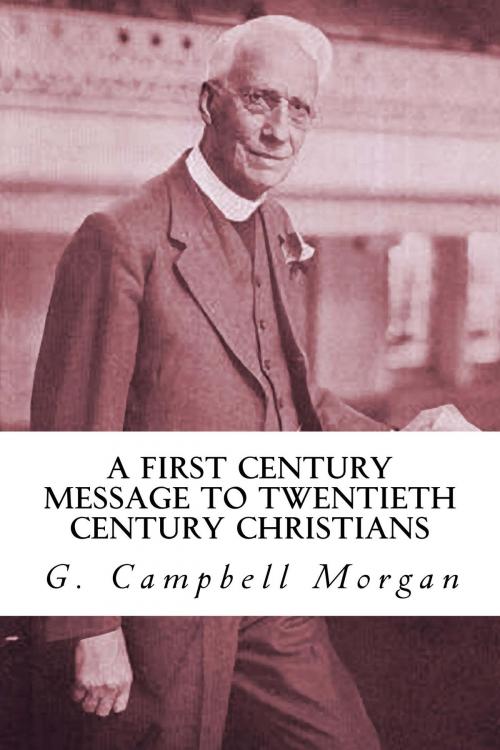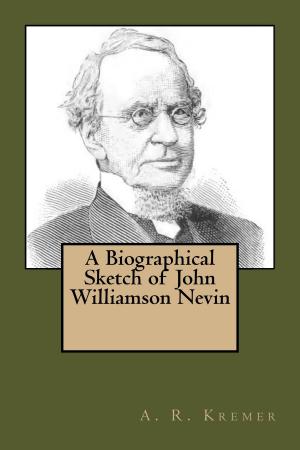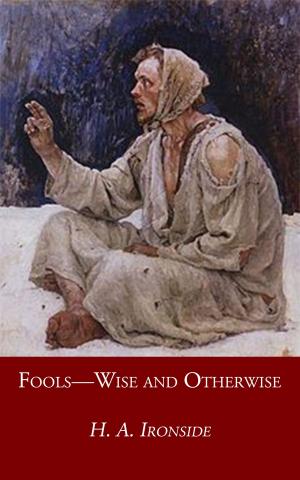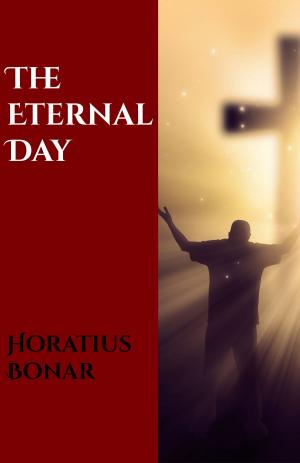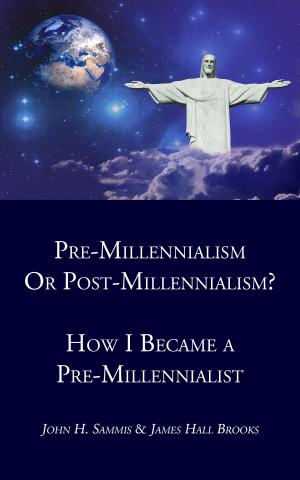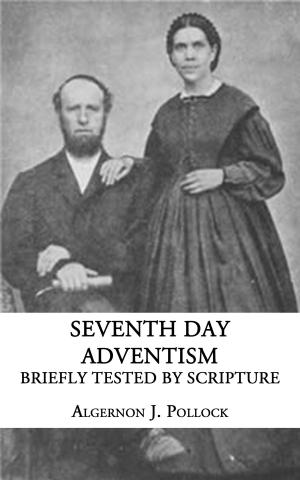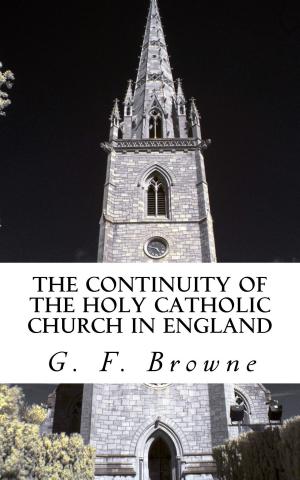A First Century Message to Twentieth Century Christians
Nonfiction, Religion & Spirituality, Christianity, Christian Literature| Author: | G. Campbell Morgan | ISBN: | 1230001945096 |
| Publisher: | CrossReach Publications | Publication: | September 30, 2017 |
| Imprint: | Language: | English |
| Author: | G. Campbell Morgan |
| ISBN: | 1230001945096 |
| Publisher: | CrossReach Publications |
| Publication: | September 30, 2017 |
| Imprint: | |
| Language: | English |
IN order to a proper understanding of the purpose of the letters to the churches of Asia, it is necessary that some word should be spoken concerning the book in which they are to be found.
This book contains the last messages of Christ to men. In some important ways it differs from any other in the Divine Library. John did not receive it by the inspiration of the Spirit in the ordinary sense of that expression, but directly from Jesus Christ, as He appeared to him while in exile in Patmos.
The usual title, “The Revelation of St. John, the Divine” is misleading, as the opening words of the book will show, which read, “The Revelation of Jesus Christ, which God gave Him to show unto His servants.” Perhaps no book has been more neglected than this Revelation of Jesus Christ, and yet it the only one that opens with a distinct and three-fold blessing pronounced, a blessing first, upon those who read, secondly, upon those who hear, thirdly, upon those who keep the things that are written therein.
There must be some deep significance in this introductory pronouncement, and because of the difficulty of interpretation, the Church has no right to neglect her Master’s last message.
Yet while it is true that no book has been so sadly neglected, it is also true that around no book has there waged more persistent controversy. So keen has that controversy been, that we find Christian people divided into distinct schools of thought about it, and we hear of Preterist, Presentist, Futurist, and Spiritual interpretations. These differences have no detailed place in our present discussion. Our business lies only with the messages to the churches. That we may see their place, some word must be said about the general character of the book.
The book of Revelation is not primarily a book of Church truth. It is a book of judgment in the broadest sense of that word, judgment, that is, as the method and government of God. It reveals the consummation of the world’s history, and gives a panorama of God’s final dealings with the earth. We find ourselves largely back in the realm of Old Testament truth. Jehovah is introduced in language in keeping with the thoughts suggested by that name to the ancient Hebrew people, “Him which is and which was and which is to come.” The Holy Spirit is spoken of, not as the unified personality that men came to know through the work of Christ, and Who appears in the Epistles of the New Testament. He is seen rather as seven Spirits, that is, in the perfection of activity, and these Spirits, moreover, are before the throne. Jesus is the “faithful Witness, the First-born from the dead, and the Ruler of the kings of the earth;” while the Church, loved and loosed from sin, is a kingdom of priests, perfected in their number, and save in the early chapters, occupying a place in glory. Thus God is revealed as supreme in the government of the universe, the Spirit as the light and activity of that government, and Jesus as the faithful Witness, and as ruling the kings of the earth.
The outlook of Revelation is larger than the Church of Christ. It deals, not with the relation of God as Father to the company of saved in the Church, but to His larger relation as King and Governor of the whole earth. There has been a great deal of cloudy thinking and teaching on these subjects. Many seem to imagine that the Church and the Kingdom of God are one and the same thing. The fact is that the Kingdom of God is infinitely larger than the Church, and includes that whole realm over which God is King, and in which that Kingship will finally be established. To-day the Church recognizes and submits to that Kingship. The time will come when all nations shall recognize and submit. The Church is an instrument to that end. And yet she is a complete entity within herself, having her specific vocation in future ages.
IN order to a proper understanding of the purpose of the letters to the churches of Asia, it is necessary that some word should be spoken concerning the book in which they are to be found.
This book contains the last messages of Christ to men. In some important ways it differs from any other in the Divine Library. John did not receive it by the inspiration of the Spirit in the ordinary sense of that expression, but directly from Jesus Christ, as He appeared to him while in exile in Patmos.
The usual title, “The Revelation of St. John, the Divine” is misleading, as the opening words of the book will show, which read, “The Revelation of Jesus Christ, which God gave Him to show unto His servants.” Perhaps no book has been more neglected than this Revelation of Jesus Christ, and yet it the only one that opens with a distinct and three-fold blessing pronounced, a blessing first, upon those who read, secondly, upon those who hear, thirdly, upon those who keep the things that are written therein.
There must be some deep significance in this introductory pronouncement, and because of the difficulty of interpretation, the Church has no right to neglect her Master’s last message.
Yet while it is true that no book has been so sadly neglected, it is also true that around no book has there waged more persistent controversy. So keen has that controversy been, that we find Christian people divided into distinct schools of thought about it, and we hear of Preterist, Presentist, Futurist, and Spiritual interpretations. These differences have no detailed place in our present discussion. Our business lies only with the messages to the churches. That we may see their place, some word must be said about the general character of the book.
The book of Revelation is not primarily a book of Church truth. It is a book of judgment in the broadest sense of that word, judgment, that is, as the method and government of God. It reveals the consummation of the world’s history, and gives a panorama of God’s final dealings with the earth. We find ourselves largely back in the realm of Old Testament truth. Jehovah is introduced in language in keeping with the thoughts suggested by that name to the ancient Hebrew people, “Him which is and which was and which is to come.” The Holy Spirit is spoken of, not as the unified personality that men came to know through the work of Christ, and Who appears in the Epistles of the New Testament. He is seen rather as seven Spirits, that is, in the perfection of activity, and these Spirits, moreover, are before the throne. Jesus is the “faithful Witness, the First-born from the dead, and the Ruler of the kings of the earth;” while the Church, loved and loosed from sin, is a kingdom of priests, perfected in their number, and save in the early chapters, occupying a place in glory. Thus God is revealed as supreme in the government of the universe, the Spirit as the light and activity of that government, and Jesus as the faithful Witness, and as ruling the kings of the earth.
The outlook of Revelation is larger than the Church of Christ. It deals, not with the relation of God as Father to the company of saved in the Church, but to His larger relation as King and Governor of the whole earth. There has been a great deal of cloudy thinking and teaching on these subjects. Many seem to imagine that the Church and the Kingdom of God are one and the same thing. The fact is that the Kingdom of God is infinitely larger than the Church, and includes that whole realm over which God is King, and in which that Kingship will finally be established. To-day the Church recognizes and submits to that Kingship. The time will come when all nations shall recognize and submit. The Church is an instrument to that end. And yet she is a complete entity within herself, having her specific vocation in future ages.
